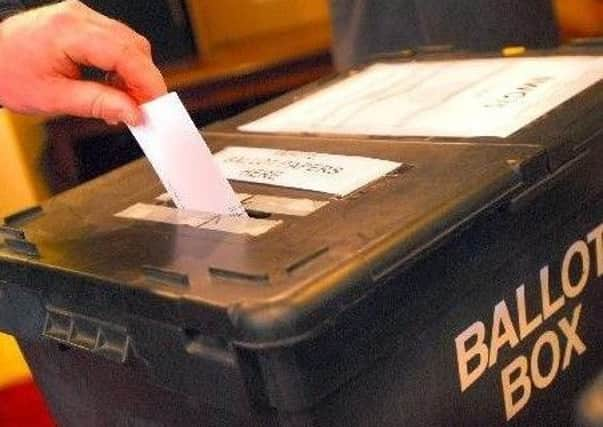The teenager who cannot wait to vote


Voter turnout among young people is continuously low. Can they not be bothered? or are they just not interested? These are the usual assumptions made about young people who aren’t voting. Obviously this is not always the case. As a 17 year old myself,
I am eagerly awaiting my first opportunity to vote and finally have a say on what I feel is important. Sadly, statistics show that most teenagers are not as keen, with YouGov revealing that only 57% of 18-19 year olds voted in the last general election. But why is this? Surely you can’t just assume that all teenagers aren’t interested in politics because this simply is not true.
Advertisement
Hide AdAdvertisement
Hide AdIt seems that many of my peers are under the impression that voting just won’t change anything and because of this they have decided to be politically active through other means such as protesting and petitioning, with the protest over Donals Trump’s visit uniting both the young and the old (potentially the only advantage of his premiership). Luckily this shows that young people are in fact interested, suggesting that the low voter participation can be easily remedied. Young people need to be educated on the importance of voting, not just to help get our political voices heard but to exercise our right to vote out of respect for the many who fought to afford us that right.
Especially with TV shows like Love Island invading, not just our televisions, but every aspect of social media making it difficult not to tune in purely to combat the threat of utter social isolation.
But the damaging impact of this show is that it perpetuates the idea that ignorance is cool and discourages its viewers from educating themselves and its because of this that most people my age are more likely to know about why Adam left love island than why David Davis left the cabinet.
The fundamental issue is that many teenagers do not feel that politics is ‘for them’ and this is understandable when you consider the fact that due to low youth participation, parties do not aim their policies at young people, which consequently dissuades them from voting. This ensures the vicious cycle of low youth voter turnout continues and can only be changed by parties including policies that young people want.
Advertisement
Hide AdAdvertisement
Hide AdFortunately politicians are finally beginning to realise this. After the Tories’ disappointing result in the 2017 election they made the decision to freeze university fees at £9,250, showing that parties are beginning to discern that, although turnout is low, the youth vote cannot be completely disregarded.
In addition to this, Labour’s massive surge in social media support cannot be ignored and was largely attributed to the promotion of their hashtag, #forthemany, which undoubtedly caught the eye of many young people who spend hours of their day on twitter. Another contributing factor of this is the way in which politics is becoming more personal through outlets such as television debates and social media videos/interviews. This has had a profound effect on the youth vote and has lead to many rallying behind labour leader, Jeremy Corbyn, after he made efforts to secure their support.
Showing that young people will engage in politics if politicians encourage them to do so. This marks a significant shift in the electoral campaigns of political parties and opens the door for a much needed boost in youth participation.